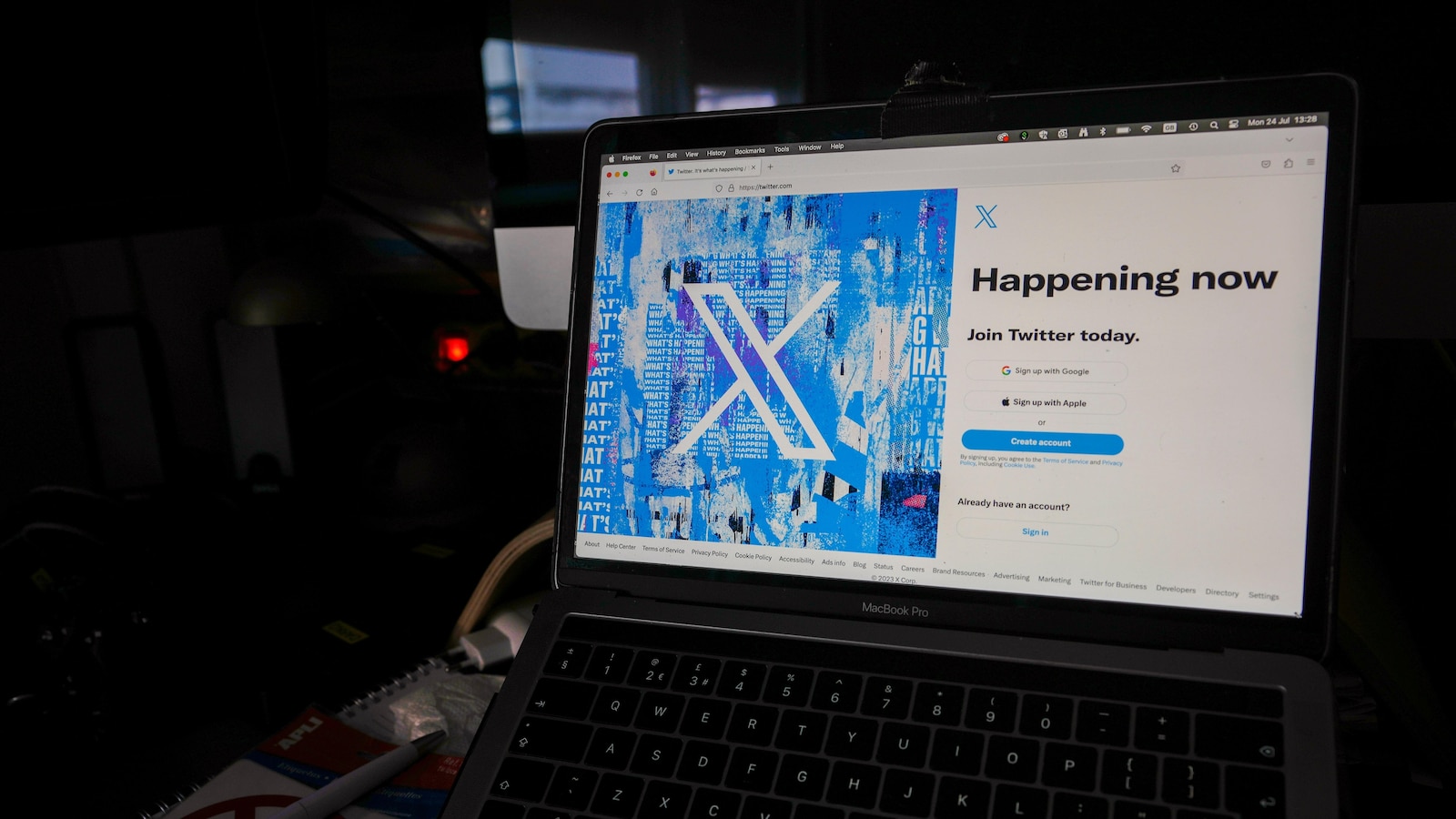RIO DE JANEIRO — Some Brazilian users regained access to X on Wednesday despite a nationwide ban put in place by the country’s Supreme Court, a reunion apparently resulting from the social network changing the way its servers are accessed.
But the renewed access may be short-lived.
Late last month, Justice Alexandre de Moraes ordered X blocked nationwide after months of tension with the site’s billionaire owner Elon Musk over free speech, far-right accounts and misinformation. De Moraes also set fines for anyone using virtual private networks, or VPNs, to access the platform.
That rendered X effectively inaccessible in the country until Wednesday, when an Associated Press journalist was among those who regained access. The number of X posts made in Brazil rose from 939,000 Tuesday to more than 2 million by late afternoon Wednesday, data analysis company Bites said.
Experts examining X’s IP addresses — numeric designations that identifies sites’ location on the internet — said there are indications the company has begun routing users through the servers of Cloudflare, a content delivery network, en route to its own.
“The service that Elon Musk’s social network has started using works like a ‘digital shield’ that protects the company’s servers,” Pedro Diogenes, Latin America’s technical director for CLM, a distributor that focuses on cybersecurity. It acts as a proxy between users and X’s servers, filtering traffic and preventing the original IP address from being recognized, Diogenes told the AP.
Brazil’s telecommunications regulator Anatel said it is looking into the situation and will report its findings to the Supreme Court, noting that there has been no change to de Moraes’ ruling. A panel of fellow justices later upheld his decision, though it hasn’t yet gone before the court’s full bench. His fine for VPN users in particular has faced blowback, including from the nation’s bar association.
The Supreme Court declined to comment on possible actions it could take. X said on its platform that the shutdown in Brazil affected service to Latin America as a whole, so it swapped network providers.
“This change resulted in an inadvertent and temporary service restoration to Brazilian users,” the Wednesday evening statement said. “We expect the platform to be inaccessible again shortly.”
Earlier Wednesday, former President Jair Bolsonaro celebrated the return of the social network with a post from his account. He has sided with Musk in the feud with de Moraes and sought to portray the ban as censorship from an overzealous judge.
Some Brazilian X users also trumpeted the platform’s return — with several addressing de Moraes directly, vowing that they weren’t using a VPN. There have been no reports of fines being levied against people using VPNs.
Cloudflare, a security company that prides itself on providing services to websites regardless of their content, has a history of protecting sites other companies won’t touch. But only to a point. In 2017, for instance, it dropped the neo-Nazi website Daily Stormer as a customer following a deadly clash at a white-nationalist rally in Charlottesville, Virginia. And in 2022, it dropped the notorious stalking and harassment site Kiwi Farms citing an “immediate threat to human life.”
But X is a mainstream social media platform — even if it may be home to some extremist content — and it is not yet clear whether Brazil’s ban would be enough for San Francisco-based Cloudflare to abandon it.
Cloudflare has a reputation for cooperating with governments, however, and so may comply with an order from the Supreme Court to cease serving as X’s proxy, David Nemer, who specializes in the anthropology of technology at the University of Virginia, told the AP.
Ordering internet service providers to block Cloudflare would be impossible, since thousands of Brazilian companies depend on it, Nemer previously wrote on Bluesky, another social media platform.
A person close to Cloudflare, who was not authorized to speak publicly about a business relationship, said the network services provider did not do anything specifically to help X get around Brazil’s ban. Rather, X recently switched to Cloudflare from another provider, which could be a reason the block is not working.
This person added that the workaround likely won’t last long.
___
Ortutay reported from San Francisco. AP writer David Biller reported from Rio.

